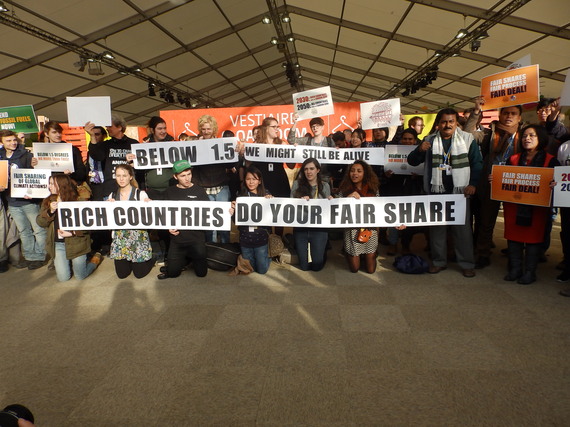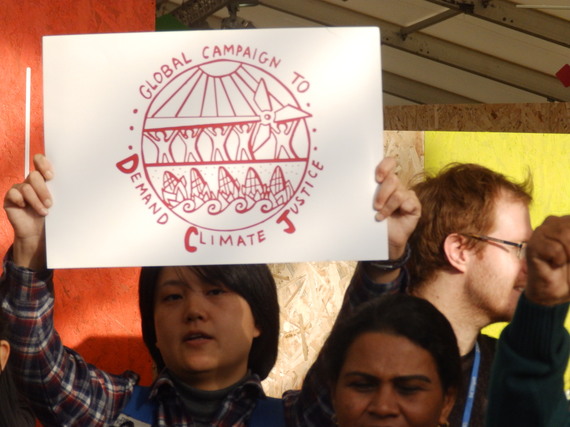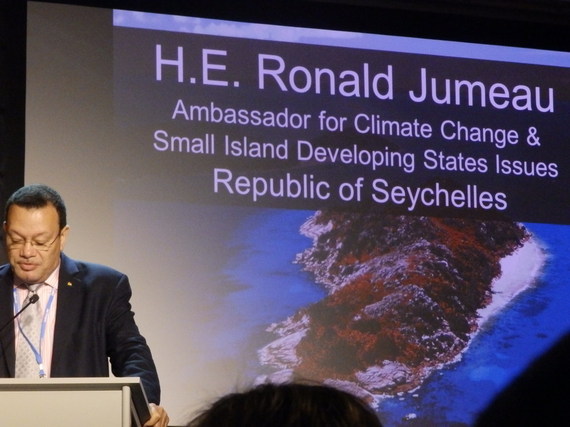If you look at your life, and your place in the world, do you ever think, "I deserve justice. My environment is changing through no fault of my own. Where is my climate justice?" If you are like me, the answer is no. As Americans, we take for granted the prosperous place that we call home. We turn on our taps and water comes out. We flick a switch and lights come on. We utilize these things without a second thought, and yet... Today I saw many young people holding a sanctioned demonstration demanding justice for small, Indigenous communities that don't always have a big voice at the table. Their call for climate justice stuck with me.
A definition of climate justice:
As a form of environmental justice, climate justice is the fair treatment of all people and the freedom from discrimination in the creation of policies and projects that address climate change, as well as the systems that create climate change and perpetuate discrimination.
One of the biggest points of contention here at the negotiations is how to have an equitable distribution of responsibility and action around climate change, which has disproportionate causes and impacts. Can we ask those countries that can least afford it to contribute the same amount to climate action as the United States? A rational person says no, but even within the U.S., vulnerable populations are being asked, and in some cases forced -- out of necessity -- to bear the costs of adapting to climate change. I spent some time talking to a young man from Shishmaref, Alaska today. He is looking at his island, where his ancestors have lived and hunted for hundreds of years, and watching 3,000 feet of it melt into the ocean every year. The U.S. Army Corps of Engineers estimates that it will cost $250 million dollars to relocate residents' homes to the mainland. He realizes that expecting the government to help them achieve this feat is a lot to ask. His family, at least, has a hunting camp on the mainland that they can retreat to, but not everyone in his community has that opportunity.
Later in the day, I learned about a country that has been denied justice throughout all of the past COP meetings: the Seychelles. This time, they decided to take fate into their own hands. They approached the Annex 1 countries (developed countries; i.e., the rich) and proposed a new way to assist their country in dealing with the fallout from storms, which are having a much greater impact, due in part to climate change. Their strategy? To offer, instead of their land, the wealth of the oceans that surround them. In exchange for preserving their reefs and fisheries, they would receive debt relief. The Seychelles' Ambassador for Climate Change developed this deal in coordination with interested parties, and has finally walked away a winner. Mitigation and debt relief rolled up into one package. With this announcement, several other nations expressed their willingness to sign onto this "blue economy," and receive help with the significant costs that are associated with cleaning up after a big storm.
Seeking justice for the situation that they find themselves in, leading by example, forging new ways to find solutions. This is why these climate justice warriors are at COP21.
Minneapolis-based nonprofit, Climate Generation: A Will Steger Legacy, is leading a delegation of 10 Education Ambassadors to COP21 through their Window Into Paris program, December 5-11. These 10 teachers - representing diverse subject areas, grade levels, and school communities from Denver, Atlanta, upstate New York, western North Carolina and Minnesota -- are connecting their students to climate policy in action, helping to build both climate literacy and the relevance of this issue in their students' lives. Follow their stories via their blogs and daily digests.



